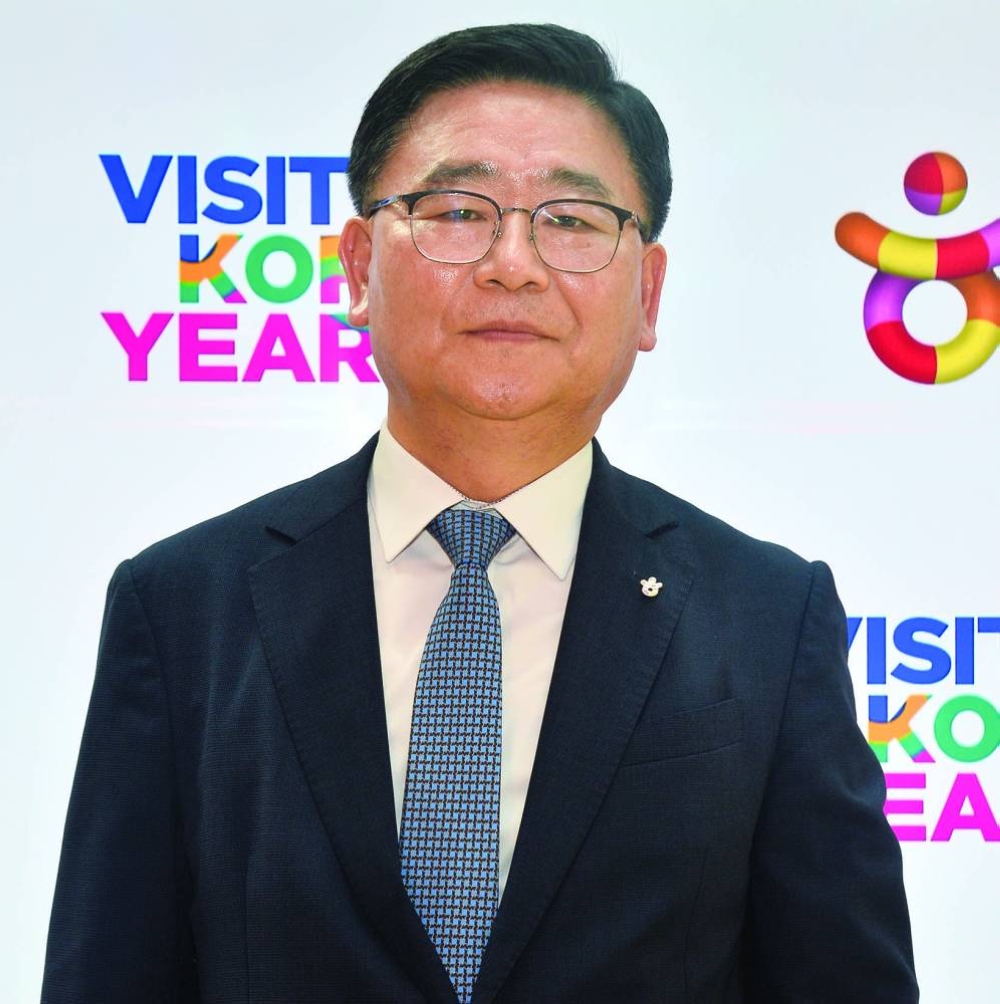
The Korea Tourism Organisation (KTO) outlined its strategic initiatives aimed at attracting visitors from the Middle East, tapping into the lucrative tourism market in the region.
In a statement shared with Gulf Times, KTO executive vice-president Hakju Lee shed light on the organisation's plans to engage with Middle Eastern tourists, particularly targeting their high-spending demographics.
“Although tourists from the Middle East constitute less than 1% of all international visitors to Korea, they spend significantly more, with an average expenditure of $1,700 — 27% above the overall tourist average of $1,240. Moreover, they tend to stay longer, with an average visit lasting 10.5 days, compared to the general average of 6.7 days,” he said.
Lee was speaking at the recently held ‘2024 Korea Tourism, Medical, and Culture Festival’, which served as a platform to commemorate the 50th anniversary of diplomatic relations between Qatar and South Korea.
The KTO official noted that medical tourists from the Middle East spend an average of KRW15 million each, six times higher than the general average.
He underlined the importance of recognising the Middle East’s growing market potential, especially among the MZ generation (individuals under 54 years old), who are active travellers and enthusiasts of the Korean Wave (Hallyu).
Lee noted that with Qatar boasting a youthful population, ripe for exploration of Korean culture, the market holds promise for future tourism endeavours.
To capitalise on this opportunity, he said KTO devised a three-pronged approach: First, the organisation plans to target Middle Eastern women with luxury Korean tourism offerings, tailored to their high spending habits and preference for extended stays. This involves developing luxury-themed tourism products and ramping up local promotional efforts.
Second, KTO aims to expand its marketing initiatives to attract Middle Eastern medical tourists, whose spending habits far exceed the general medical tourist average. By shifting focus towards cosmetic and dental treatments, the organisation seeks to appeal to this lucrative segment of the market.
“Lastly, our goal is to grow the Free Independent Traveler market by targeting the MZ generation with enhanced online engagement and marketing strategies.
“We plan to deliver trendy and appealing content specifically designed for young women of the Middle Eastern MZ generation, utilising their preferred social media channels as the primary means of communication,” Lee said.

